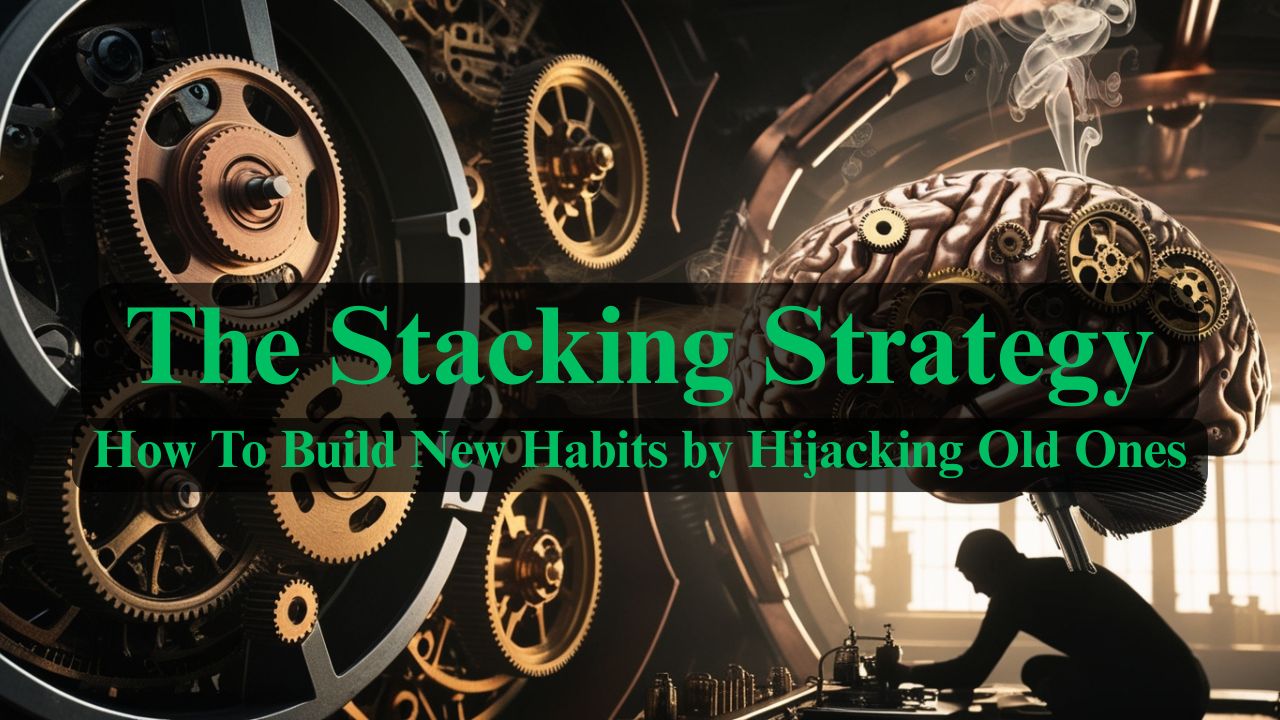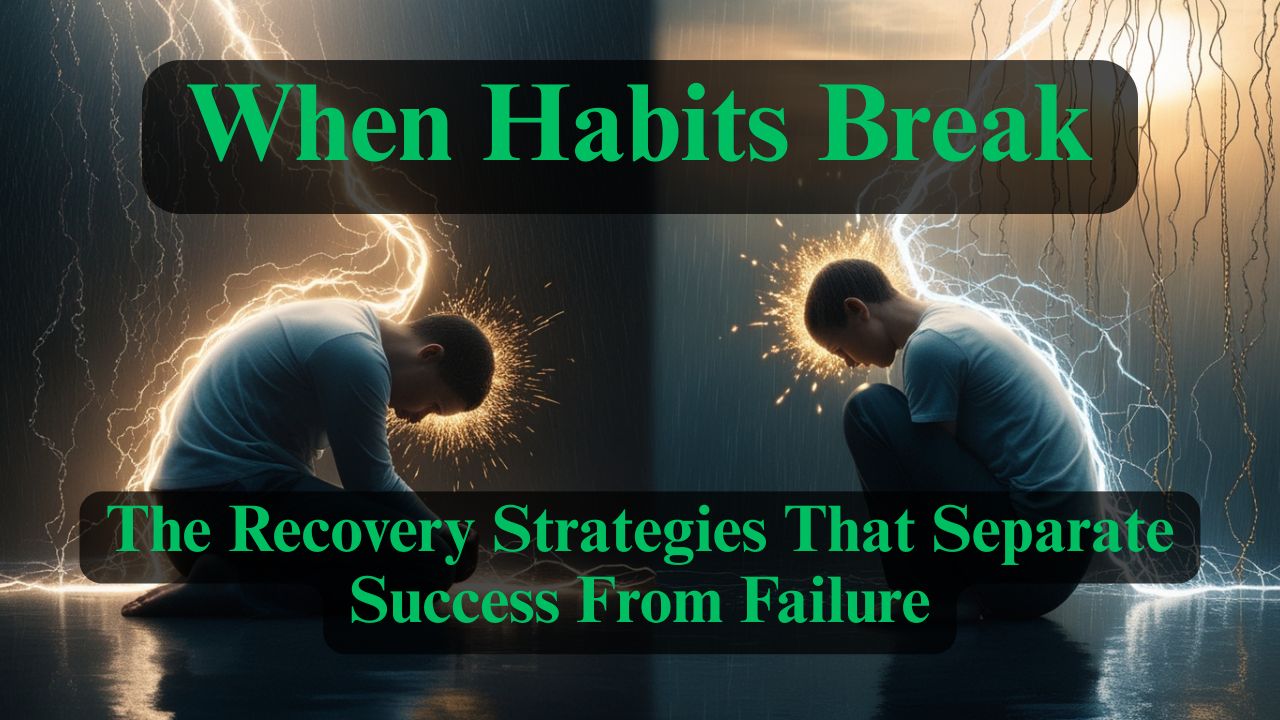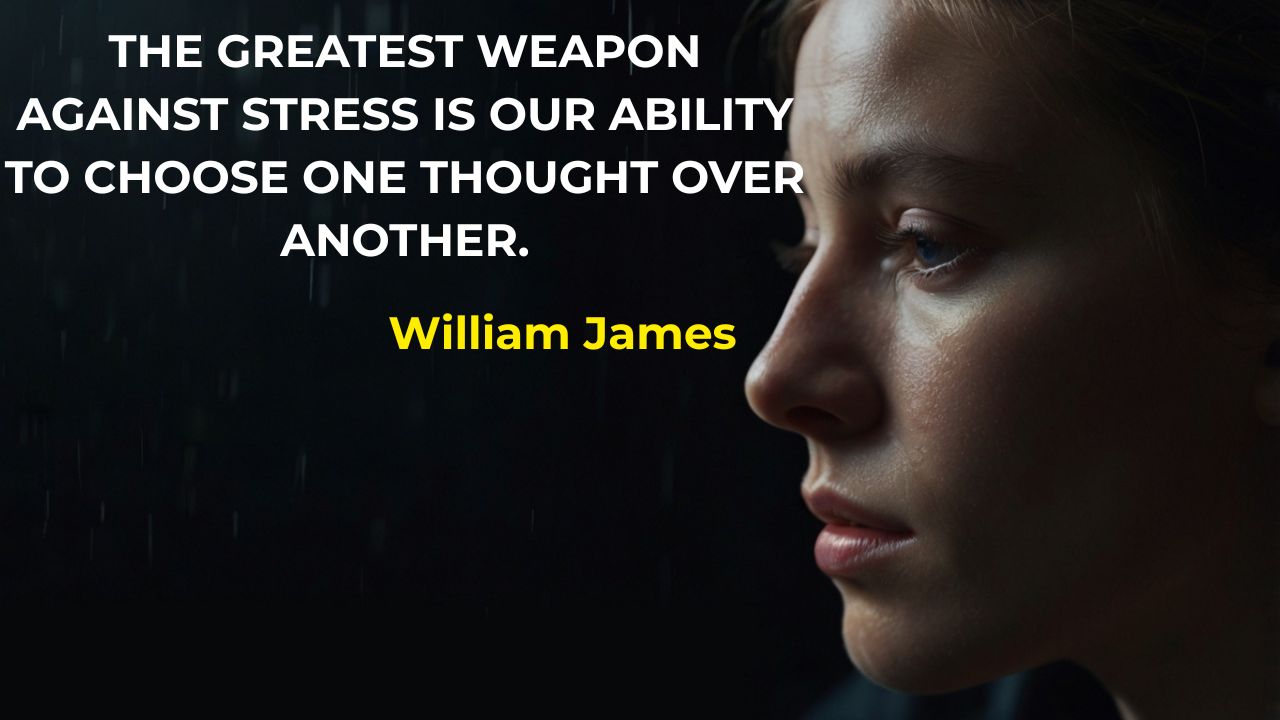Understanding Self-Sabotage: The Hidden Barrier to Our Success
Self-sabotage is one of the most destructive patterns we can fall into, but it often operates beneath the surface of our conscious awareness. In the image above, we see a person sitting at a desk late at night, visibly stressed and overwhelmed. The setting is chaotic—a mix of unfinished food, a bottle of water, a phone with notifications, and scattered papers. This visual captures the essence of self-sabotage: we often say we want something, but then take actions that prevent us from achieving it.
As the quote from Alyce Cornyn-Selby in the image states, "Self-sabotage is when we say we want something and then go about making sure it doesn’t happen." This powerful statement perfectly captures the paradox of self-sabotage—our actions directly contradict our desires.
What Is Self-Sabotage?
Self-sabotage refers to behaviors or thought patterns that prevent us from reaching our goals. These actions are often unconscious and can manifest in various ways, such as procrastination, negative self-talk, unhealthy habits, or avoiding opportunities that could lead to success. It’s a paradoxical cycle where, despite our best intentions, we undermine ourselves, often because of fear, insecurity, or a lack of belief in our abilities.
In the image, the person is surrounded by distractions: food and drink, a phone with potential distractions, and a disorganized workspace. This chaotic environment can be a physical manifestation of the inner turmoil often experienced by someone engaging in self-sabotage. They may say they want to be productive or successful, but the actions they take—eating mindlessly, checking their phone, and avoiding the work at hand—ultimately keep them stuck.
Why Do We Self-Sabotage?
1. **Fear of Failure or Success**
Sometimes, we sabotage our own efforts because we’re afraid of failing. We fear that our efforts will not be enough or that others will judge us for not succeeding. But interestingly, there is also a deeper, more subtle fear of success. Success might bring added pressure, higher expectations, or unwanted changes in our lives. The fear of success can cause us to hold back, to procrastinate, or to make excuses—ultimately preventing us from reaching our full potential.
2. **Low Self-Worth**
A lack of self-esteem or self-worth can lead to self-sabotage. If we don't believe we deserve success, we may unintentionally take actions that prevent us from achieving our goals. This could look like procrastination, self-doubt, or avoiding opportunities that could lead to personal or professional growth.
3. **Comfort in the Familiar**
Humans tend to seek comfort in the familiar, even if it’s unhealthy. It’s easier to stay in a cycle of procrastination or to indulge in distractions than to face the discomfort of doing the hard work required to achieve a goal. The person in the image, for example, might be eating unhealthy food or drinking mindlessly instead of focusing on their tasks, simply because it feels better in the short term than facing the anxiety of work or responsibility.
4. **Perfectionism**
Perfectionism is another form of self-sabotage. When we set unattainably high standards for ourselves, we can become paralyzed by the fear of making mistakes. As a result, we procrastinate, avoiding the task entirely to prevent the possibility of not meeting our own expectations. This is reflected in the image—by sitting idly and stressing out, the person may be avoiding the task due to the fear of not doing it "perfectly."
The Cycle of Self-Sabotage
Self-sabotage often works in a vicious cycle. At first, we might feel motivated to achieve a goal, but as we face obstacles or discomfort, we begin to retreat into old habits or distractions. Over time, these actions reinforce feelings of guilt, frustration, and shame, which can make it even harder to break the cycle. In the image, the individual’s frustrated body language—holding their head in their hands—illustrates this internal struggle. The chaotic desk, the unfinished food, and the scattered papers represent the unfinished business that piles up when self-sabotage takes hold.
This cycle can continue unless we identify it and take steps to change our behavior.
Breaking the Cycle of Self-Sabotage
Recognizing that we are engaging in self-sabotage is the first step in breaking the cycle. Here are some strategies to help overcome it:
1. **Awareness and Mindfulness**
The first step to overcoming self-sabotage is to become aware of the behaviors and thought patterns that lead to it. Mindfulness practices—such as journaling or meditation—can help you reflect on your actions and notice when you are derailing your own success. Being aware allows you to intervene before the sabotage spirals out of control.
2. **Challenge Negative Beliefs**
If you struggle with feelings of low self-worth, challenge those beliefs. Replace negative self-talk with positive affirmations and focus on your strengths. Remember, you are capable of achieving your goals, and you deserve success.
3. **Set Achievable Goals**
Sometimes, self-sabotage occurs because the goals we set for ourselves feel too daunting or overwhelming. Break your larger goals down into smaller, manageable tasks. Celebrate each small win, and give yourself credit for progress, no matter how small.
4. **Create a Support System**
Having a support system of friends, family, or mentors can help you stay accountable and motivated. Sometimes, we need external encouragement to push through difficult moments and remind us of our potential.
5. **Take Care of Your Mental Health**
Self-sabotage often comes from unresolved anxiety, stress, or past trauma. Take care of your mental health by seeking therapy, practicing self-compassion, and engaging in healthy coping mechanisms. The healthier you feel mentally, the less likely you are to fall into self-sabotaging behaviors.
Conclusion
The image of the person engaging in self-sabotage—a common struggle in our journey to success—illustrates the complexity of this hidden behavior. While we may outwardly say we want something, our actions sometimes contradict our desires. The key to overcoming self-sabotage lies in recognizing it, understanding why we engage in it, and taking intentional steps to break the cycle. With awareness, determination, and support, we can stop undermining our own success and begin to take control of our future.
- Audio Articles
- Audio Articles 1
- Audio Articles 2
- Audio Articles 3
- Audio Articles 4

7 Daily Disciplines That Transform Your Life
The power to act with intention, to align your actions with your values, and to move steadily toward a life of purpose—even on days you don't feel like it.
Read Full Article
How to Build Unbreakable Discipline
Discipline is built—habit by habit, choice by choice, day by day. And the most powerful kind? The kind that doesn’t crack under pressure. The kind that becomes part of who you are.
Read Full Article
Why Motivation Fails And Discipline Wins Every Time
We all love the feeling of motivation—that surge of energy, that rush of inspiration that makes everything seem possible. But here’s the problem: motivation is unreliable. It’s emotional. It comes and goes. And if your goals rely on you “feeling like it,” you’re already in trouble.
Read Full Article
Discipline Over Desire
Desire is loud. It burns bright, talks fast, and loves to dream. But desire alone doesn't achieve much. Every person has desires. Very few have the discipline to bring them to life.
Read Full Article
The Science of Sticking
If you've ever tried to build a new habit, you've probably heard that it takes 21 days. This number gets thrown around so often that it feels like scientific fact.
Read Full Article
The Stacking Strategy
What if I told you that the habits you already have—even the ones you consider "bad"—could become the secret weapons for building the habits you want?
Read Full Article
When Habits Fail - The Recovery Strategies That Separate Success From Failure
Here's what nobody tells you about building habits: you will fail. You'll miss days. You'll fall off track. You'll have weeks where everything falls apart.
Read Full Article
The Ultimate System - Designing a Life Where Good Habits Are Inevitable
You've learned to recognize habits, understand their formation timeline, stack them strategically, and recover from setbacks.
Read Full Article




















